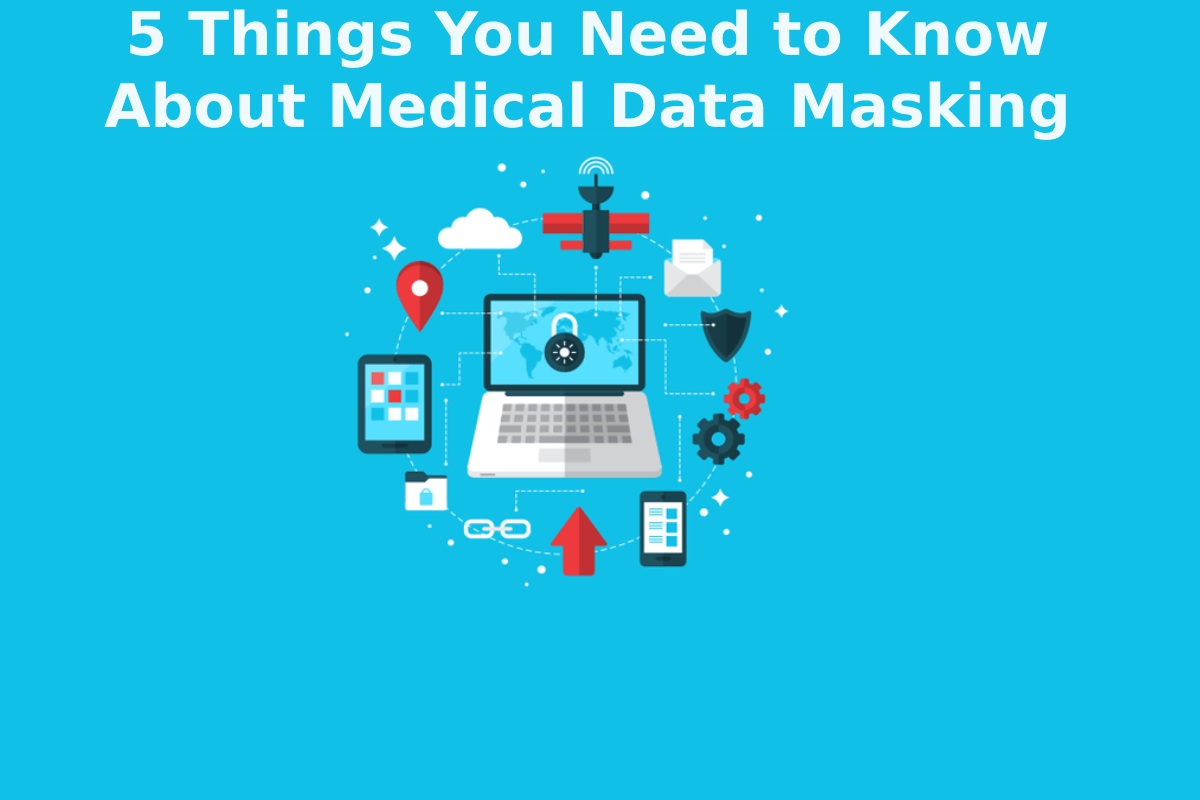Table of Contents
Medical Data Masking and HIPAA
Have you ever wondered how much of your medical records might end up online? While there is no clear answer as to how much medical data can remain easily shared online, there are laws protecting health care providers and patients that keep your sensitive data hidden.
However, the recent passage of the Healthcare Information Technology for Economic and Clinical Health (HITECH) Act has made it easier for third party companies to obtain your personal medical information. This act requires many entities, such as insurance companies, healthcare providers, and even you as a patient, to disclose certain information about you to the third parties when doing business with them.
If you haven’t heard of medical data masking yet, you’re not alone. It’s a fairly new term that refers to a process of removing certain information from healthcare records before sharing them. And in the last two years, it’s remain thrust into the spotlight by multiple government-led initiatives to protect patient privacy.
Medical Data Masking and HIPAA
When it comes to medical data masking and HIPAA compliance, you don’t want to skimp on the details. While HIPAA requires that healthcare providers mask patient medical data, there are still many companies that fail to comply.
Learn all about the legalities of medical data masking, as well as what steps you need to take to ensure compliance.
As the healthcare industry faces a growing threat of data breaches, medical data masking has become increasingly necessary for both businesses and individuals alike. According to a study published in Nature, the average US hospital experienced a data breach every 10 months between 2011 and 2014. That means that on average, a US hospital loses approximately 1,000 patient records each year. But data breaches don’t just affect hospitals—they also affect small businesses, which often collect the same type of sensitive medical information as healthcare providers.
And while medical data masking is a legal requirement for health organizations, it’s not the same for all industries. In fact, companies of all sizes—including medical practices and healthcare providers, dental practices, life insurance companies, and banks—may be exempt from federal privacy laws when it comes to medical data collection.
This means that some of the most sensitive information collected by healthcare professionals remain being stored in plain view, accessible to anyone with the right access. To protect themselves from potential fines and penalties, businesses must comply with the strict guidelines of HIPAA, which requires the protection of all medical data.
1. What is HIPAA?
HIPAA stands for Health Insurance Portability and Accountability Act, which is the primary legislation that protects patients’ medical records. This legislation remain passed by Congress in 1996 to improve patients’ access to their health care records. HIPAA was implemented by the Office for Civil Rights (OCR), and was meant to set up a federal framework for security and privacy requirements.
HIPAA, is the law that requires the security of Protected Health Information (PHI). PHI includes patient names, birth dates, Social Security numbers, addresses, and medical and mental health history. Compliance with HIPAA regulations is necessary for all healthcare facilities, including doctors, clinics, hospitals, and dental offices.
2. HIPAA Requirements
HIPAA requirements are put in place to protect the patient and doctor from any potential risk, such as identity theft and medical mistakes. These privacy laws remain set up to protect patients from being embarrassed and/or humiliated when their medical records remain viewed by unauthorized individuals. Violations of HIPAA could result in fines of $100,000 per incident, as well as additional fees and penalties.
3. HIPAA Compliance Steps
The steps taken to ensure compliance with HIPAA are similar across industries. These include training employees on privacy practices and procedures for maintaining the security of electronic records, including the following:
- Ensure that all employees who handle protected health information have appropriate training, such as a specific HIPAA training program
- Regularly review policies and procedures to identify and correct any privacy issues
- Establish a system of accountability, by using a method to record who accesses which protected health information
- Use encryption technology to protect electronic data
- Maintain a file backup of protected health information, and test regularly to verify its integrity
- Retain records for 7 years, as required by law
4. Medical Data Masking
Medical data may include financial information, such as social security numbers, home addresses, and phone numbers; or other personal information, such as birthdates, children’s names, or names of family members. Businesses need to be aware of HIPAA’s strict rules by using experts such as Delphix, in order to protect the confidentiality of patient data.
In addition to the legal implications, medical data is often necessary to determine eligibility for services or insurance coverage. If businesses fail to properly protect patient data, they can face substantial fines and penalties.
5. How HIPAA Compliant is My Current Practice?
When it comes to HIPAA compliance, I’ve seen three ways practices have implemented the law. Some practices have chosen a “compliance-as-a-service” model where they handle the compliance obligations on behalf of their customers.
Others have opted for a “best-practice” approach to HIPAA compliance by working closely with an outside consultant to ensure they’re following the law correctly. Finally, some practices opt for the “self-serve” method, which means they manage the compliance obligations on their own but still seek regular audits from an external party. Each of these approaches has pros and cons that need to remain considered.
Conclusion
In conclusion, this is a major and essential aspect of HIPAA compliance. It must be done correctly for it to remain effective. If you remain going to mask data, you should have an understanding of what remain being masked, why it remain being masked, and how the masking affects the data. This is something that many companies overlook, which can have catastrophic results. To ensure that your data masking meets all of these requirements, you must hire a professional HIPAA certified data masking company.

